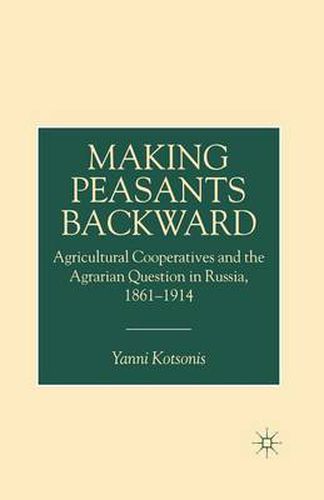Readings Newsletter
Become a Readings Member to make your shopping experience even easier.
Sign in or sign up for free!
You’re not far away from qualifying for FREE standard shipping within Australia
You’ve qualified for FREE standard shipping within Australia
The cart is loading…






This title is printed to order. This book may have been self-published. If so, we cannot guarantee the quality of the content. In the main most books will have gone through the editing process however some may not. We therefore suggest that you be aware of this before ordering this book. If in doubt check either the author or publisher’s details as we are unable to accept any returns unless they are faulty. Please contact us if you have any questions.
In this first monograph on the Russian cooperative movement before 1914, economic and social change is considered alongside Russian political culture. Looking at such historical actors as Sergei Witte, Piotr Stolypin, and Alexander Chaianov, and by tapping into several newly opened Russian local and state archives on peasant practice in the movement, Kotsonis suggests how cooperatives reflected a pan-European dilemma over whether and to what extent populations could participate in their own transformation.
$9.00 standard shipping within Australia
FREE standard shipping within Australia for orders over $100.00
Express & International shipping calculated at checkout
This title is printed to order. This book may have been self-published. If so, we cannot guarantee the quality of the content. In the main most books will have gone through the editing process however some may not. We therefore suggest that you be aware of this before ordering this book. If in doubt check either the author or publisher’s details as we are unable to accept any returns unless they are faulty. Please contact us if you have any questions.
In this first monograph on the Russian cooperative movement before 1914, economic and social change is considered alongside Russian political culture. Looking at such historical actors as Sergei Witte, Piotr Stolypin, and Alexander Chaianov, and by tapping into several newly opened Russian local and state archives on peasant practice in the movement, Kotsonis suggests how cooperatives reflected a pan-European dilemma over whether and to what extent populations could participate in their own transformation.